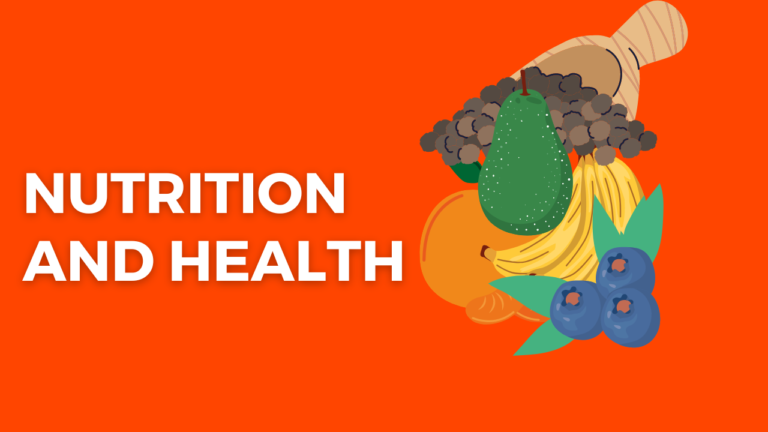Benefits of Including [specific food] in Your Diet
The Health Benefits of Including [specific food] in Your Diet

Introduction
I’d be happy to share information about the health benefits of a specific food if you can let me know which food you’re referring to. Whether it’s fruits, vegetables, grains, nuts, or any other food item, just specify it, and I’ll provide you with information about its health benefits and nutritional value.
The Nutritional Profile of Avocados

Avocados are highly regarded for their rich nutrient content and numerous health benefits. Here’s a breakdown of the nutritional profile of avocados based on a typical serving size of 100 grams:
- Healthy Fats: Avocados are notably high in healthy monounsaturated fats, particularly oleic acid, which is beneficial for heart health. About 15 grams of monounsaturated fats can be found in a 100-gram serving.
- Fiber: They are an excellent source of dietary fiber, providing around 7 grams per 100 grams. This fiber content aids in digestion, contributes to satiety, and supports a healthy gut.
- Vitamins: Avocados are rich in various vitamins, including:
- Vitamin K: Important for blood clotting and bone health.
- Vitamin E: An antioxidant that helps protect cells from damage.
- Vitamin C: An antioxidant that supports the immune system and skin health.
- B Vitamins (such as B5, B6, and folate): Essential for energy production, metabolism, and fetal development during pregnancy.
- Minerals: Avocados contain minerals like potassium, which is crucial for maintaining healthy blood pressure levels and proper muscle function. Other minerals found in avocados include magnesium, manganese, copper, and small amounts of iron and zinc.
- Antioxidants: Avocados contain various antioxidants, including lutein and zeaxanthin, which are beneficial for eye health and may reduce the risk of age-related macular degeneration.
- Low in Sugar: Avocados are naturally low in sugar, making them a suitable choice for those looking to manage their blood sugar levels.
- Caloric Content: While nutrient-dense, avocados are also energy-dense due to their healthy fat content. A 100-gram serving contains approximately 160 calories.
Consuming avocados as part of a balanced diet offers several health benefits, such as supporting heart health, aiding in weight management, promoting healthy aging, and providing essential nutrients crucial for overall well-being. However, portion control is advisable due to their relatively high-calorie content.
Incorporating avocados into salads, spreads, smoothies, or simply consuming them sliced can be a flavorful and nutritious addition to your diet.
The Heart-Healthy Benefits of Avocados


Avocados offer several heart-healthy benefits due to their nutrient composition, particularly their high content of monounsaturated fats, vitamins, minerals, and antioxidants. Here’s how avocados support heart health:
- Healthy Fats: Avocados are rich in monounsaturated fats, specifically oleic acid. These fats are known to help reduce levels of LDL cholesterol (the “bad” cholesterol) while increasing levels of HDL cholesterol (the “good” cholesterol). This balance is crucial for maintaining heart health by lowering the risk of plaque buildup in arteries and reducing the risk of heart disease.
- Potassium: Avocados are a good source of potassium, providing even more potassium than bananas. Potassium is essential for regulating blood pressure and maintaining proper heart function. Adequate potassium intake can help lower blood pressure, reducing the strain on the cardiovascular system.
- Antioxidants: Avocados contain various antioxidants, including vitamin E, vitamin C, and phytochemicals like lutein and zeaxanthin. These antioxidants help combat oxidative stress and inflammation, which are associated with the development of cardiovascular diseases.
- Fiber: Avocados are high in fiber, which supports heart health by aiding in the regulation of cholesterol levels and improving overall digestion. Dietary fiber helps lower LDL cholesterol and maintains healthy blood sugar levels.
- Omega-3 Fatty Acids: Though in smaller amounts compared to fish or nuts, avocados also contain omega-3 fatty acids, which have anti-inflammatory properties and may contribute to heart health.
Incorporating avocados as part of a heart-healthy diet can be beneficial. However, it’s essential to consider portion sizes due to their calorie content, especially if you’re mindful of caloric intake or weight management. Including half an avocado or moderate portions in meals while maintaining a balanced diet can offer the benefits without excessive caloric intake.
Ultimately, avocados can be a valuable addition to a heart-healthy diet due to their nutrient density and the various ways they support cardiovascular health by improving cholesterol levels, regulating blood pressure, and reducing inflammation.
Beneficial Effects of Avocados on Weight Management

Avocados can play a positive role in weight management due to several reasons:
- Rich in Healthy Fats: Avocados contain predominantly monounsaturated fats, which contribute to satiety. Including healthy fats in your diet can help you feel fuller for longer periods, potentially reducing overall calorie intake by curbing hunger and preventing excessive snacking.
- Fiber Content: Avocados are an excellent source of dietary fiber. Fiber promotes satiety and aids digestion, which can contribute to better appetite control and potentially reduce the overall amount of food consumed.
- Low Sugar Content: Avocados are naturally low in sugar. They provide a creamy, satisfying texture without the need for added sugars, making them a suitable component for those aiming to minimize sugar intake for weight management purposes.
- Nutrient Density: Avocados are not only rich in healthy fats and fiber but also contain various essential vitamins, minerals, and antioxidants. Despite being calorie-dense, they offer a broad range of nutrients that support overall health, which is important when managing weight through balanced nutrition.
- Satiety Factor: Studies suggest that including avocados in meals might lead to increased feelings of fullness and satisfaction. This can potentially reduce the desire to eat more or snack excessively between meals, aiding in weight management efforts.
- Supporting Metabolism: Avocados contain nutrients like B vitamins (such as B5, B6, and folate) that are involved in energy metabolism. Ensuring an adequate intake of these nutrients can support the body’s metabolic processes.
It’s important to note that while avocados offer several benefits for weight management, portion control is still essential. They are nutrient-dense and relatively high in calories, so consuming them in moderation as part of a well-rounded, balanced diet is key to reaping their benefits without overdoing caloric intake.
Incorporating avocados into meals in various ways, such as using them in salads, sandwiches, smoothies, or as a topping, can add flavor, texture, and nutritional value to your diet while supporting your weight management goals.
The Role of Avocados in Enhancing Digestive Health

Avocados can contribute positively to digestive health due to several factors:
- High Fiber Content: Avocados are a great source of dietary fiber, containing both soluble and insoluble fiber. Fiber plays a crucial role in digestive health by promoting regular bowel movements, preventing constipation, and supporting a healthy digestive system.
- Prebiotic Potential: The fiber in avocados serves as a prebiotic, promoting the growth of beneficial gut bacteria. Prebiotics are non-digestible fibers that feed the good bacteria in your gut, fostering a healthy gut microbiome. A balanced gut microbiome is linked to better digestion and overall health.
- Supporting Nutrient Absorption: The healthy fats in avocados, particularly monounsaturated fats, can aid in the absorption of fat-soluble vitamins such as vitamins A, D, E, and K. These vitamins are essential for various bodily functions and overall health.
- Reducing Inflammation: Avocados contain antioxidants and phytonutrients that have anti-inflammatory properties. Chronic inflammation in the gut can lead to digestive issues, and consuming foods with anti-inflammatory properties, like avocados, may help alleviate these issues.
- Easy to Digest: Avocados are easily digestible due to their creamy texture and healthy fat content. For individuals with sensitive digestive systems, avocados can be a gentle and easily tolerated source of healthy fats and nutrients.
Incorporating avocados into your diet in various ways, such as in salads, spreads, smoothies, or as a topping, can support digestive health. However, as with any food, individual tolerance may vary. Some individuals may need to moderate their avocado intake if they experience digestive discomfort or have specific dietary restrictions.
Overall, avocados can be a beneficial addition to a balanced diet aimed at supporting digestive health due to their fiber content, ability to promote a healthy gut environment, and their role in aiding nutrient absorption.
Avocados and Eye Health

Avocados can contribute to eye health due to the presence of certain nutrients and antioxidants that are beneficial for vision. Here’s how they support eye health:
- Lutein and Zeaxanthin: Avocados contain these two carotenoids, which act as antioxidants in the eye. They are concentrated in the macula of the eye and are known to help protect the eyes from harmful light and oxidative damage. Lutein and zeaxanthin may reduce the risk of age-related macular degeneration (AMD) and cataracts, two common eye conditions that can lead to vision impairment.
- Vitamins E and C: Avocados are a source of vitamin E and vitamin C, both of which have antioxidant properties. These vitamins help combat oxidative stress and protect the cells of the eyes from damage caused by free radicals.
- Healthy Fats for Nutrient Absorption: The healthy fats found in avocados aid in the absorption of fat-soluble vitamins, including vitamin E, which is essential for eye health. Consuming avocados with other nutrient-rich foods can enhance the absorption of these beneficial vitamins.
- Anti-Inflammatory Properties: Avocados contain compounds with anti-inflammatory effects. Chronic inflammation is associated with various eye conditions, so consuming foods with anti-inflammatory properties, like avocados, may potentially support eye health.
Incorporating avocados into a balanced diet that includes a variety of fruits, vegetables, and other nutrient-rich foods can contribute to overall eye health. However, it’s important to note that while avocados offer these nutrients beneficial for eye health, they should be part of a comprehensive approach to eye care that includes regular eye check-ups, protection from excessive UV exposure, and a healthy lifestyle.
Including avocados in salads, sandwiches, dips, or smoothies can be an enjoyable way to incorporate them into your diet while potentially supporting your eye health.
How to Incorporate Avocados in Your Diet

Avocados are versatile and can be incorporated into your diet in various delicious and nutritious ways. Here are some ideas on how to enjoy avocados:
- Guacamole: One of the most popular ways to enjoy avocados is by making guacamole. Mix mashed avocados with chopped onions, tomatoes, cilantro, lime juice, salt, and pepper. Enjoy it with tortilla chips, as a topping for tacos, or alongside your favorite dishes.
- Avocado Toast: Mash ripe avocado onto whole-grain toast and season it with salt, pepper, and additional toppings like sliced tomatoes, red pepper flakes, a drizzle of olive oil, or a sprinkle of feta cheese.
- Salads: Add sliced or diced avocados to salads for creaminess and extra flavor. They pair well with greens, cherry tomatoes, cucumber, nuts, and vinaigrette dressings.
- Smoothies: Blend avocados into smoothies for a creamy texture and added nutrients. They pair well with ingredients like spinach, banana, berries, almond milk, and a touch of honey or agave for sweetness.
- Stuffed Avocados: Scoop out some of the flesh of halved avocados and fill them with various ingredients like quinoa, salsa, black beans, or a mixture of grains and vegetables for a nutritious and filling meal.
- Sushi or Poke Bowls: Sliced avocados are a great addition to sushi rolls or poke bowls, adding a creamy texture and healthy fats to these dishes.
- Soups: Garnish soups, such as gazpacho or black bean soup, with diced avocado for added texture and flavor.
- Egg Dishes: Top omelets, scrambled eggs, or breakfast burritos with sliced avocados for a nutritious breakfast option.
- Dips and Spreads: Blend avocados with Greek yogurt, lime juice, and spices to create a creamy dip or spread for veggies, crackers, or sandwiches.
Remember, when choosing avocados, look for ones that yield slightly to gentle pressure and avoid those with dark spots or overly mushy areas.
Incorporating avocados into your diet is not only tasty but also adds healthy fats, fiber, vitamins, and minerals to your meals, contributing to a well-rounded and nutritious eating plan.
Conclusion
In conclusion, avocados are a nutrient-dense fruit that offers a wide array of health benefits, making them a valuable addition to a balanced diet:
- Nutritional Powerhouse: Avocados are packed with healthy monounsaturated fats, fiber, vitamins (such as vitamin K, vitamin E, vitamin C, and various B vitamins), minerals (including potassium and magnesium), antioxidants, and phytonutrients.
- Heart Health: Their high content of monounsaturated fats and potassium can support heart health by helping to lower LDL cholesterol, increase HDL cholesterol, regulate blood pressure, and reduce the risk of cardiovascular diseases.
- Weight Management: The combination of healthy fats, fiber, and low sugar content in avocados can contribute to increased satiety, better appetite control, and reduced overall calorie intake, which may aid in weight management.
- Digestive Health: Avocados, being rich in fiber and possessing prebiotic properties, support digestive health by promoting regular bowel movements, fostering a healthy gut microbiome, and aiding in nutrient absorption.
- Eye Health: Avocados contain essential nutrients like lutein, zeaxanthin, vitamins E and C, which contribute to eye health by protecting against oxidative damage and reducing the risk of age-related eye conditions.
Incorporating avocados into various meals, such as salads, sandwiches, dips, smoothies, and more, offers not only versatility in cooking but also a delicious way to benefit from their nutritional value.
While avocados provide numerous health advantages, moderation is key due to their calorie density. Integrating avocados as part of a diverse and balanced diet, combined with other nutrient-rich foods, supports overall health and well-being. Always consult with a healthcare professional or registered dietitian for personalized dietary advice tailored to your specific health needs and goals.






